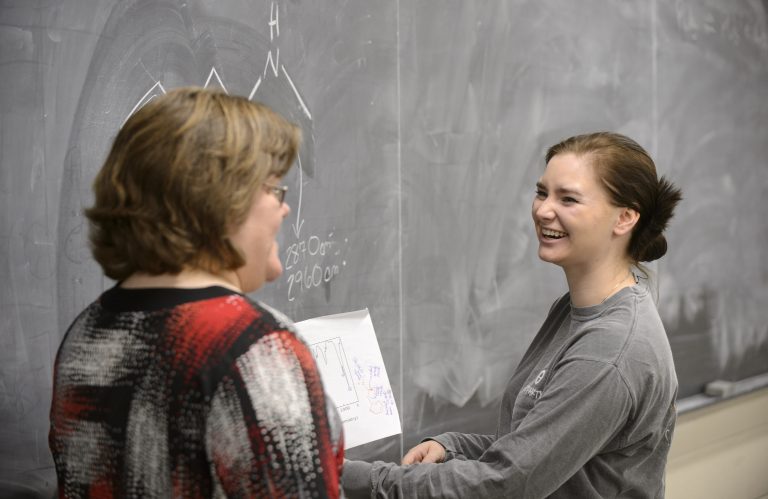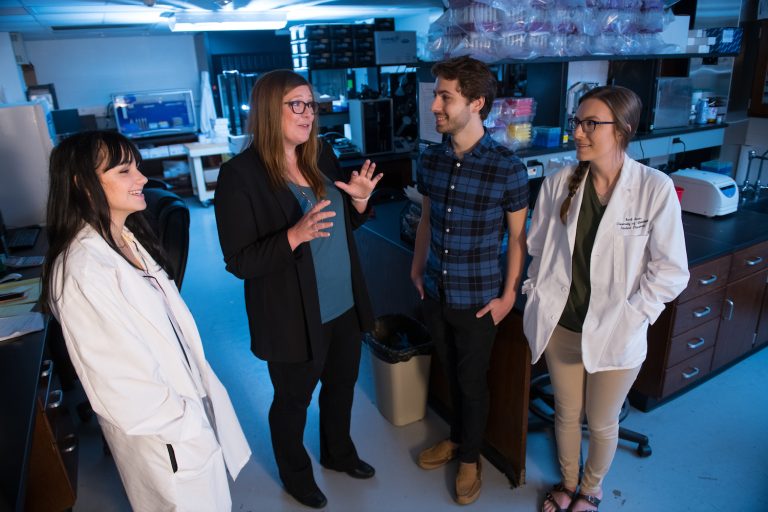Campaign Priorities

Student Success
We have a tremendous need to help better support students on their path to graduation. We also want to support enriching opportunities such as internships and studying abroad. A lack of financial resources should not be a barrier for students to experience these opportunities as they complete their education and launch into their professional lives.
On behalf of the entire university, the College of Liberal Arts manages several programs and resources that support the success of all students on campus. They include the Health Professions Advising Office, Grove Scholars, the Pre-Law Advising Office, the Writing and Speaking Centers and the FASTrack Learning Community. With your support, we can continue to enhance these services for the success of all UM students.

GROW MORE EXPERTS WHO TEACH, RESEARCH AND SERVE
The College supports the university’s Carnegie R1 status through the graduation of doctoral students. More than 550 students are enrolled in graduate programs in the College, with an increase in the last 10 years in our 11 doctoral programs, particularly among women, a 25% increase, and minority students, an 81% increase. High quality master’s and doctoral programs and students attract top faculty and promote UM’s teaching, research and service mission.
With your support, we can increase stipends and support more graduate candidates who can be significant contributors to our community and open more advanced career fields to young people. Funds to support graduate students are needed in many areas. We regularly lose in the recruitment of outstanding graduate students to peer institutions over just a few thousand dollars a year.

TEACH, DISCOVER, LEAD AND SERVE
Dedicated professors define the university’s academic reputation and the influence they wield is invaluable. Our faculty not only share their knowledge with their students; they also fuel a love of learning and ignite passion for public service, educating the next generation of leaders. Private support can help us recruit and retain outstanding faculty who can successfully compete for external research grants and prestigious fellowships.
As the university’s student enrollment has increased, the faculty growth has not kept pace, resulting in advanced courses that are too large for a top educational experience. We also need more tenure-track faculty to provide the critical mentorship for our undergraduate and graduate students. The vast majority of students in the Sally McDonnell Barksdale Honors College —a program that has grown tremendously— are students in the College of Liberal Arts. The College of Liberal Arts prides itself on the faculty mentorship it provides at the premier liberal arts flagship institution in the state of Mississippi. Private support can help us strengthen that reputation.

PROVIDE LEARNING SPACES FOR THE FUTURE
Spaces in which faculty teach, students learn and explore, groups collaborate and innovate and researchers reach for new and exciting discoveries in their fields are essential foundations for excellence. More than just its physical structure, an academic building houses and invigorates a community. The proximity of inquiring minds and talented researchers and scholars is critical to inspire the accomplishments of a top-ranked academic program.
The College of Liberal Arts is located in 33 different buildings, and most of these buildings have not had a major renovation in decades, if ever. In all, these more than 100 teaching spaces need re-imagined, refreshed designs and new technology to meet today’s innovative approaches to teaching and learning. More modern facilities will attract and retain superior faculty and students, enhance faculty productivity, contribute to research and propel student success.

